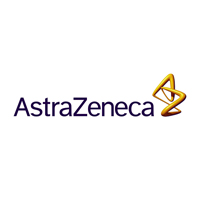AstraZeneca Plc (LON:AZN) announced today positive results from the Phase III DECLARE-TIMI 58 cardiovascular (CV) outcomes trial (CVOT) for Farxiga (dapagliflozin), the broadest SGLT2 inhibitor CVOT conducted to date. The trial evaluated the CV outcomes of Farxiga vs. placebo over a period of up to five years, across 33 countries and in more than 17,000 adults with type-2 diabetes (T2D) who have multiple CV risk factors or established CV disease.
In the DECLARE (Dapagliflozin Effect on Cardiovascular Events)-TIMI 58 trial, Farxiga met its primary safety endpoint of non-inferiority for major adverse cardiovascular events (MACE). Farxiga achieved a statistically-significant reduction in the composite endpoint of hospitalisation for heart failure (hHF) or CV death, one of the two primary efficacy endpoints. Additionally, fewer MACE events were observed with Farxiga for the other primary efficacy endpoint, however, this did not reach statistical significance.
Data from DECLARE-TIMI 58 confirmed the well-established safety profile of Farxiga.
Elisabeth Björk, Vice President, Head of Cardiovascular, Renal and Metabolism, Global Medicines Development said: “Farxiga has achieved a statistically-significant and clinically-important reduction in hospitalisation for heart failure or CV death in a broad range of patients with type-2 diabetes and cardiovascular risk. The results from this landmark trial are especially important since heart failure is an early and frequent complication of diabetes and associated with hospitalisations that result in a considerable societal and economic burden.” 1-7
Dr Stephen Wiviott of Brigham and Women’s Hospital and Harvard Medical School, a senior investigator with the Thrombolysis in Myocardial Infarction (TIMI) study group and co-principal investigator of the trial, commented: “The DECLARE-TIMI 58 results offer compelling evidence that dapagliflozin helps to address an important medical need among a diverse group of patients with type-2 diabetes by reducing the composite of hospitalisation for heart failure or CV death, with a safety profile supportive of broad use.”
Detailed trial results will be presented on 10 November at the American Heart Association Scientific Sessions 2018 in Chicago, USA.
About DECLARE-TIMI 58
DECLARE (Dapagliflozin Effect on Cardiovascular Events)-TIMI 58 is an AstraZeneca-sponsored, randomised, double-blinded, placebo-controlled, multicentre trial designed to evaluate the effect of Farxiga compared with placebo on CV outcomes in adults with T2D at risk of CV events, including patients with multiple CV risk factors or established CV disease. DECLARE included more than 17,000 patients across 882 sites in 33 countries and was independently run in collaboration with academic investigators from the TIMI study group (Boston, USA) and the Hadassah Hebrew University Medical Center (Jerusalem, Israel).8
DECLARE is part of the extensive DapaCare clinical programme for Farxiga, which will enrol patients in randomised clinical trials, including a wide range of mechanistic studies, and is supported by a multinational real-world evidence study (CVD-REAL). The DapaCare clinical programme will generate data across a spectrum of people with CV risk factors, established CV disease and varying stages of renal disease, both with and without T2D. DECLARE is paving the way for three Phase III trials: Dapa-HF, DELIVER and Dapa-CKD.
About Farxiga (dapagliflozin)
Farxiga is a first-in-class, oral, once-daily selective inhibitor of human sodium-glucose co-transporter 2 (SGLT2) indicated as both monotherapy and as part of combination therapy to improve glycaemic control, with the additional benefits of weight loss and blood pressure reduction, as an adjunct to diet and exercise in adults with T2D. Farxiga is not indicated to reduce the risk of CV events, CV death or hHF. Farxiga has a robust clinical trial programme of more than 35 completed and ongoing Phase IIb/III trials in over 35,000 patients, as well as more than 1.8 million patient-years’ experience.
About AstraZeneca in Cardiovascular, Renal & Metabolism (CVRM)
Cardiovascular, renal and metabolism together form one of AstraZeneca’s main therapy areas and a key growth driver for the Company. By following the science to understand more clearly the underlying links between the heart, kidneys and pancreas, AstraZeneca is investing in a portfolio of medicines to protect organs and improve outcomes by slowing disease progression, reducing risks and tackling co-morbidities. Our ambition is to modify or halt the natural course of CVRM diseases and potentially regenerate organs and restore function, by continuing to deliver transformative science that improves treatment practices and cardiovascular health for millions of patients worldwide.
About AstraZeneca
AstraZeneca is a global, science-led biopharmaceutical company that focuses on the discovery, development and commercialisation of prescription medicines, primarily for the treatment of diseases in three therapy areas – Oncology, Cardiovascular, Renal & Metabolism and Respiratory. AstraZeneca operates in over 100 countries and its innovative medicines are used by millions of patients worldwide.








































